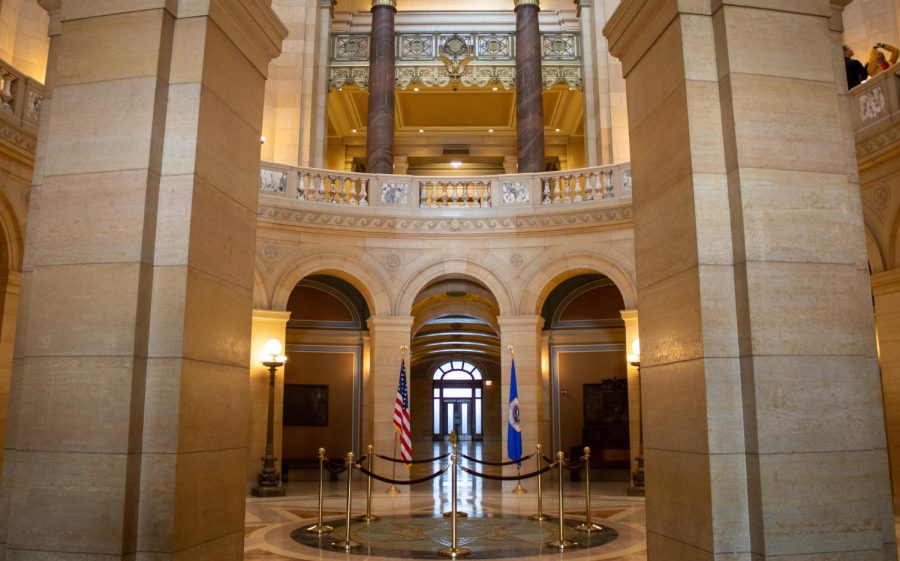Candidates for the University of Minnesota Board of Regents answered questions about their plans to address important University issues at a forum Tuesday night held at the Minnesota Capitol.
During every regent election, the University Alumni Association holds an event for attendees to ask board candidates about how they plan to represent the University if elected. A common thread among the candidates this year was the desire to increase the board’s transparency, accessibility and focus on University students.
In January, the Regent Candidate Advisory Council (RCAC) at the Minnesota Legislature recommended 12 candidates to move on to the regent nomination joint committee for the next step in the selection process. The joint committee, composed of representatives and senators from the higher education budget and policy divisions, will choose candidates to recommend to state lawmakers during the joint vote session.
There are currently four seats up for reelection, including Congressional Districts 2, 3 and 8. There is also one at-large seat up this year.
Candidates for District 2 include Dakota County Commissioner and former DFL state representative Joe Atkins and West St. Paul City Council Member Robyn Gulley.
District 3 candidates include Allina Health President Penny Wheeler, Minnesota Nurses Association (MNA) President Mary Turner and former DFL state representative Bill Luther. Minnesota Five Guys franchise owner, William Humphries, who is also running for District 3, was not present due to a conflict.
The President of the Center for Regulatory Research, Susan Cohen, and current Regent Tadd Johnson are the District 8 candidates.
The candidates for the at-large seat are the University’s Undergraduate Student Government president, Flora Yang, the Minnesota Future Farmers of America Foundation’s executive director, Val Aarsvold, and the University’s former men’s gymnastics coach Mike Burns. Program Director at the Minnesota Technology Association Rebecca Siekmeier is also an at-large candidate.
At the forum, each candidate had 30 seconds to answer questions submitted by attendees. Subjects ranged from strengthening diversity across the University system to increasing tuition costs.
Diversity, equity and inclusion
When asked about how they plan to strengthen diversity, equity and inclusion at the University, many candidates said they would expand outreach within the University community and consider multiple viewpoints in the process.
Humphries said in a prewritten statement that increasing diversity on the board itself is important to best address this issue.
“As a Black man from Detroit, I am the recipient of many decisions made that impact minorities, but we are seldom in the room when decisions are made,” Humphries said. “If our Board of Regents resembled our stakeholders, our road to diversity, equity and inclusion would give everybody a sense of belonging at the University of Minnesota.”
Tuition increases
The candidates were asked how they feel about raising tuition, and many agreed that it should be used as a last-resort solution to budget cuts.
Each year, the University president presents their proposed budget to the board, which includes any increases in tuition. The board votes whether to approve the budget in June. In 2022, the board voted to approve a 3.5% tuition increase.
“Tuition honestly has to be the last thing that is increased,” Yang said. “The negative tuition accountability cycle, we need to step out of that right now to ensure that college is affordable for students.”
The Legislature’s regent nomination joint committee must meet by Feb. 28 to discuss candidate nominations to deliver to lawmakers.
Public accessibility to the board
Another question from the audience asked how the candidates plan to incorporate input from the community and stakeholders into their decision making.
Turner touched on making the board open to public comment, similar to the MNA’s meeting structure. Many public university governance boards also include public comment opportunities. The University’s board only accepts public comments through requests the board chair approves or during a one-hour slot at the annual budget forum in May.
“This would give an opportunity for legislators, students, workers, anyone who needs to have a voice to be heard at this time,” Turner said.













